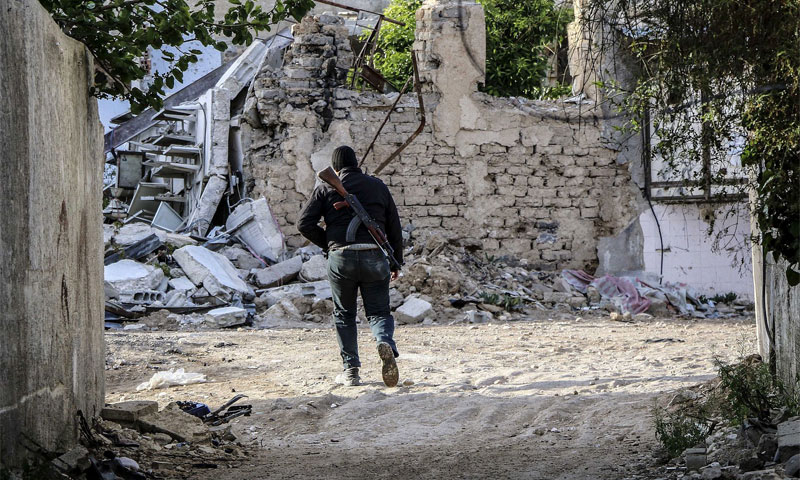
Multiple Factions and Different Ideologies
Northern Syria Loses Fighters in “Evacuated Zones”

Northern Syria is the only destination for the fighters and people of the towns and cities evacuated by the Syrian regime in the final months of 2016 after an agreement by fighters to completely evacuate their areas and leave for the city of Idlib with only one light weapon per fighter.
Once the fighters arrived in Idlib and its countryside, their choices vary. Some of them remain with their factions, which are reunited again but with fewer members than before. Others choose to join the larger factions dispersed throughout the region. Other factions choose a totally different path, abandoning their weapons as “the spirit of the revolution” is no longer what it was in their cities.
Several factors prompt fighters to put down their weapons after leaving their areas. In this report, Enab Baladi explores these reasons and analyzes them through interviews with a number of fighters who recently put down their weapons and with some military leaders who comment on this new trend.
“Factionalism” with multiple aims
Alaa Hamada was displaced from the city of Hama, where he was a fighter in the ranks of the opposition factions in the southern countryside of Hama. He spoke to Enab Baladi before he put down his weapon about the reasons behind his decision and his transition to civilian work.
He said, “The main reason that led me to leave armed combat is the infighting between the factions. We can no longer even understand the reasons for this infighting or who is right and who is wrong.”
Another factor is “the large number of bad people, especially the leaders of factions. Some of them have become like mafia, which made fighting unbearable.”
The fighters who arrived in northern Syria found a “factional pluralism” that characterizes the Syrian North. Their military and political experiences in the years under siege in their cities and towns differed radically from their situation now, starting with the differing and diverse tendencies of the various factions. This as led to accusations of “treason” and fighting between the factions, which plays directly into the hands of the regime.
Ahmed, a fighter from western Damascus (who asked us not to disclose his full name) cited the same reason given by Alaa. After he arrived in northern Syria, he left military combat and became an “entrepreneur” due to various reasons, the most important being the “multiple factions and the loss of small factions”.
The young man told Enab Baladi, ““A person who was formerly a group commander in his faction or a battalion commander finds a totally different situation after moving to northern Syria. He no longer has the same status that he had during his military activities in his area.”
Furthermore, the major factions were “belittling and harassing” the smaller factions in order to pressure them to affiliate themselves to them. The second reason in Alaa’s view, which prompted an adverse reaction from many members, is “their understanding that the fight has changed from jihad against the regime to a battle over interests and political infighting.”
Fake battles and lack of planning
During the past few weeks, military coalitions within the Syrian opposition factions have witnessed significant losses and “weak planning” in the face of Assad’s military forces backed by foreign and local militias. Syrian opposition factions have withdrawn from the battlefield in favor of Assad’s forces in various areas, most notably in the city of Aleppo.
Observers of military affairs in Syria have attributed this decline and military retreat to a lack of planning and coordination between the different factions during battles.
Others argue that factions are restricted by the need to maintain continuous military funding and support through the supply of munitions and heavy and light weapons from international powers that control the factions’ actions and their military plans, which is the main reason behind their decline. They claim that these international powers are a key factor behind the fragmentation of these factions and the main reason behind their conflicting views, which contribute to the disengagement of many militants because “the objectives differ radically from what they were before”.
Enab Baladi contacted Husam Salama Abu Bakr, a senior member of Harakat Ahrar al-Sham al-Islamiyya (Movement of the Free People of the Levant) to figure out why militants are abandoning military combat after reaching northern Syria. He explained that “the fighter who arrives in northern Syria thinks that he will continue fighting the regime that besieged and displaced him and drove him out from his land by force, but he fears that he will get sucked into internal conflicts that benefit the regime. This causes psychological distress that makes him put down his arms, abandon fighting and think about leaving his country for good.”
Alaa al-Hamawi gave another reason behind the choice to abandon the fight, which is “the fake battles, lack of planning and the dependence on international orders, as well as the transformation of the battlefield into a tool in the hands of politicians.”
He pointed out that “the battles have become political goals used to put pressure on a specific side. That’s why fighters consider these battles worthless and that they can abandon them and their goals, which are mainly political.”
The struggle for survival and for a living
Several reasons have been cited for the decision by fighters to abandon armed combat and seek other jobs, whether inside or outside Syria. They may need to do so because they have to earn a living, especially if they have families and children whose basic needs have to be met.
Ahmed added, “The financial situation is no less important than the other issues I mentioned because after we left our cities life has become more expensive. Rents are very expensive, especially for married couples. So the main concern for any young man is to earn a leaving. The salary of a fighter in the various military factions doesn’t exceed $100, which is not enough.”
Abandoning support for besieged areas
Abu Ali al-Dimashqi is a former fighter in the town of Khan al-Sheikh in Damascus’ western countryside. He told us that the reason he left armed combat was “the shock to fighters in Damascus’ countryside from the treachery and betrayal of other opposition factions.”
“The fall of Daraya in August 2016 was the biggest reason. With the entry of al-Assad’s forces, we saw huge acts of betrayal and the handover of opposition areas without any resistance, which is why fighters gave up the fight after they left the area”.
Moreover, “The media war conducted by the Syrian regime inside liberated areas to spread the idea that this was the end of the revolution was one of the main reasons.”
Husam Abu Bakr pointed out during his interview with Enab Baladi, “When I examined some individual cases of fighters, I found that the fighter leaves the besieged and conflict areas in a very bad psychological and emotional state. Most of them hope to reach an area where the revolutionary and military situation is better than it was in the areas under siege.”
However, these fighters “are, to a certain extent, shocked by the reality they face in terms of the infighting and ideological conflicts between armed factions. This places him in a state of isolation, exhaustion and psychological trauma. This is on top of their feelings of insecurity in the case of Daraya’s fighters, who were the victims of several attacks during their journey to the city of Idlib”.
The former fighter Abu Ali did not forget to mention “ideological differences in northern areas and the fighting between factions, “which was the primary reason identified by newly arrived fighters”.
if you think the article contain wrong information or you have additional details Send Correction
النسخة العربية من المقال
-
Follow us :
Most viewed
- Syrians pack their bags in Turkey
- After European call to engage with Syrian regime, Italy appoints ambassador to Damascus
- Syrian pressures prevent Omar al-Aroub from attending Paris Olympics
- Turkey and Russia discuss resuming patrols on M4 highway
- After Baraa Qaterji’s elimination, Is Syrian regime replacing its economic façade?

















 A
A
A
A
A
A



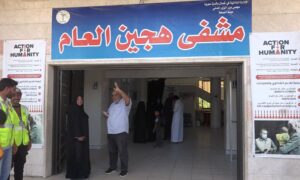
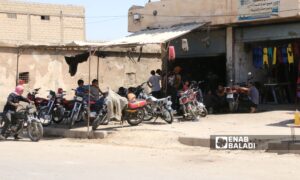
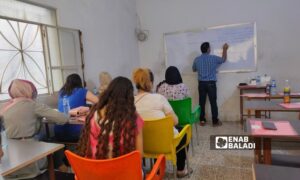
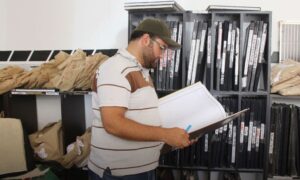

 More Society
More Society